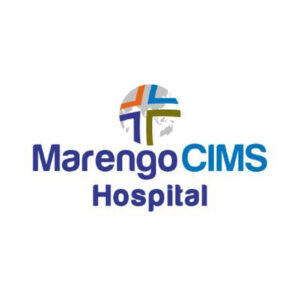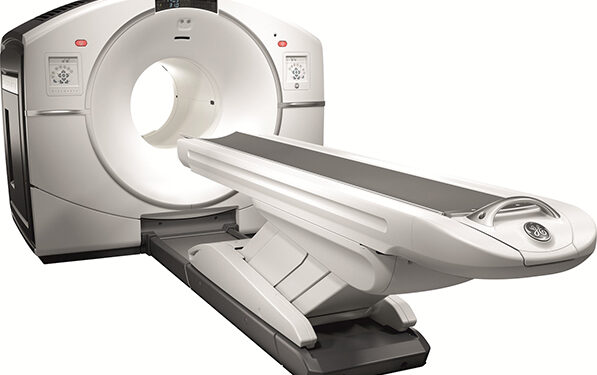NE HEALTH BUREAU
AHMEDABAD, APRIL 25

Marengo CIMS Hospital launched the advanced diagnostic technology in cancer care – the PET/CT Scanner ‘Discovery IQ Gen2’. This state-of-the-art equipment represents a significant milestone in the hospital’s commitment to providing one of the most upgraded healthcare solutions to its patients.
The ‘Discovery IQ Gen2’ PET CT Scanner is an advanced version of the technology to treat cancer, offering benefits such as improved image quality, reduced radiation dose, faster scanning speed, and enhanced diagnostic accuracy. These features contribute to more precise diagnoses, better treatment planning, and improved patient outcomes in cancer care and other medical fields.
- The ‘Discovery IQ Gen2’ PET CT Scan Device detects cancer in its initial stage, as well as the alteration level of the cellular function & indicates the location of the tumour well in advance
- The device significantly improves the quality, safety, and efficiency of PET CT imaging, benefiting both healthcare providers and patients in the field of cancer care and diagnosis.
This technology uses a radioactive tracer (a substance that emits positrons) injected into the patient’s body. As the tracer moves through the body, it emits positrons that collide with electrons, producing gamma rays. These gamma rays are detected by the PET scanner, creating detailed images that show how organs and tissues are functioning at a cellular level. PET scans are especially useful in detecting metabolic changes and abnormalities, such as cancerous cells that consume more glucose than normal cells. Using X-rays to create cross-sectional images of the body, the CT scans provide detailed anatomical information, showing the structure and density of tissues and organs. They are commonly used to detect tumors, abnormalities, and injuries. While facilitating earlier detection, this technology allows a better scope for personalized treatment planning.
Dr Devang Bhavsar, Consultant Radiation Oncologist, Marengo CIMS Hospital, says, “The launch of the ‘Discovery IQ Gen2’ PET/CT scanner reaffirms our dedication to delivering the highest standard of care to our cancer patients. With its superior imaging quality and enhanced diagnostic capabilities, we can now offer more precise diagnoses and tailor treatment strategies to individual patient needs. We aim at better outcomes for our patients and this technology will be leveraged to meet our goals.”
Dr Keyur Parikh, Chairman – Marengo CIMS Hospital, says “Introducing the PET/CT scan machine ‘Discovery IQ Gen2’ is a significant milestone in revolutionizing cancer care at Marengo CIMS Hospital. With the successful launch of the ‘Discovery IQ Gen2’ PET/CT scan machine at our esteemed hospital, we bring a host of benefits, including improved image quality, reduced radiation dose, faster scanning speeds, and enhanced diagnostic accuracy. These features not only empower our healthcare professionals to deliver precise diagnoses and treatment plans but also ensure the safety and well-being of our patients.”
Dr Raajiv Singhal, Managing Director & Group CEO, Marengo Asia Hospitals says, “This upgraded technology represents a significant milestone and underscores our commitment to providing advanced healthcare solutions to our patients, particularly in the field of cancer care. With ‘Discovery IQ Gen2′, we are redefining cancer care treatment solutions and setting new standards of excellence in healthcare delivery to save more lives with early and precise detection. We will continue to work collaboratively towards our mission of providing exceptional care and making a positive impact in the lives of those we serve.”
Mr Gaurav Rekhi, Regional Director, West says, “We are proud to be at the forefront of innovation in cancer care. The introduction of the ‘Discovery IQ Gen2’ PET/CT Scanner underscores our ongoing efforts to enhance the quality, accessibility, and effectiveness of healthcare services for our patients and the community we are a part of.”
Over the past decade, cancer has emerged as a prominent cause of mortality in India. The increasing burden of cancer has highlighted the necessity to recognize and bridge gaps within the healthcare infrastructure, ensuring that affordable and high-quality cancer care is accessible to all while optimizing the value of such care. India’s cancer burden is surging, but for a majority of Indians, cancer care is detected too late. At that stage, cancer becomes unaffordable and hence, inaccessible.









